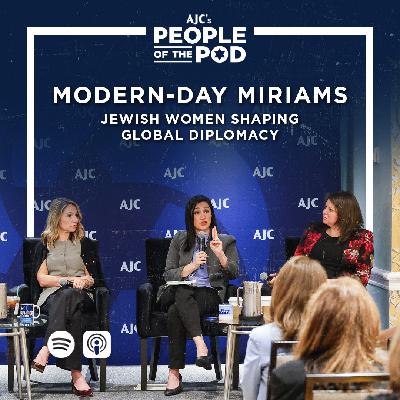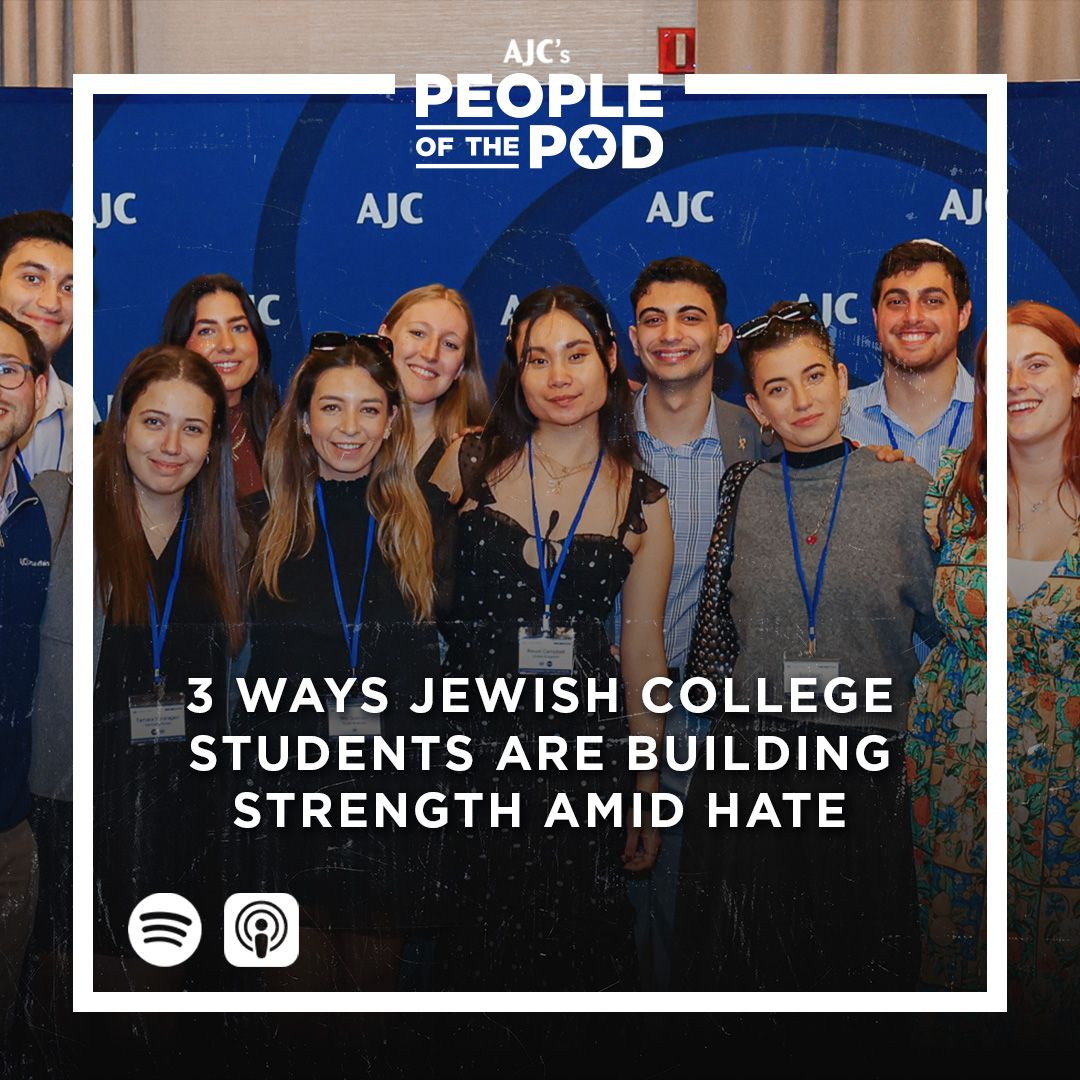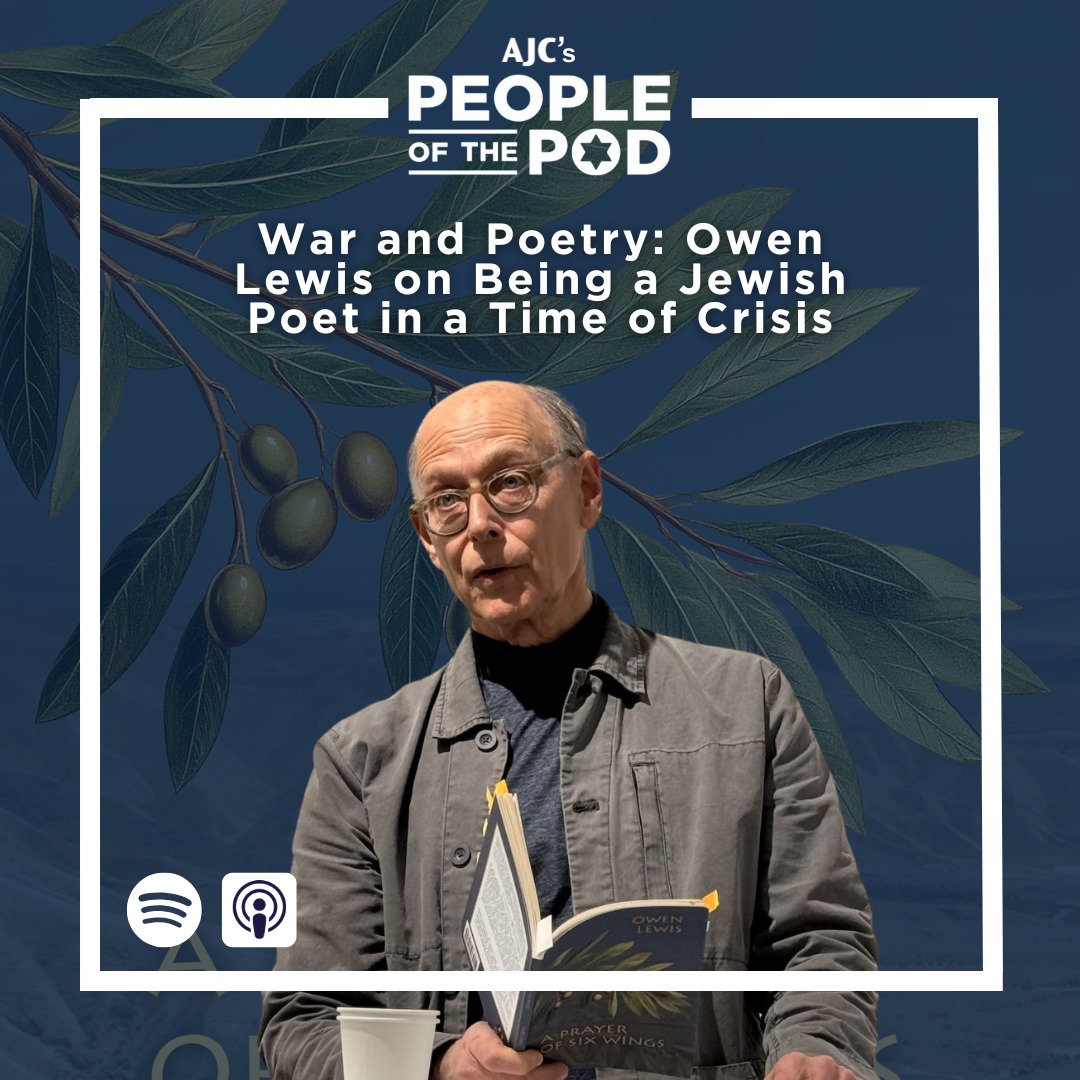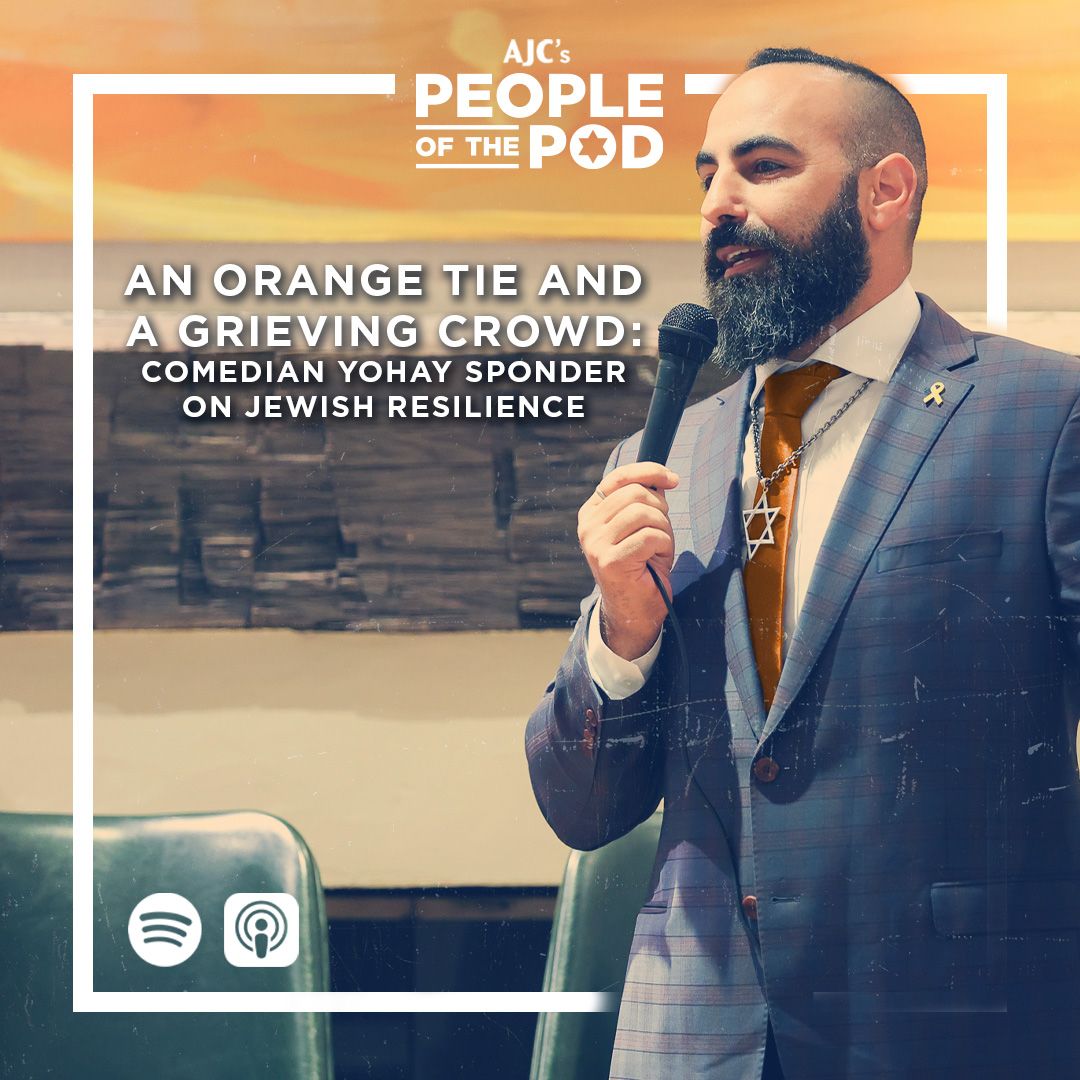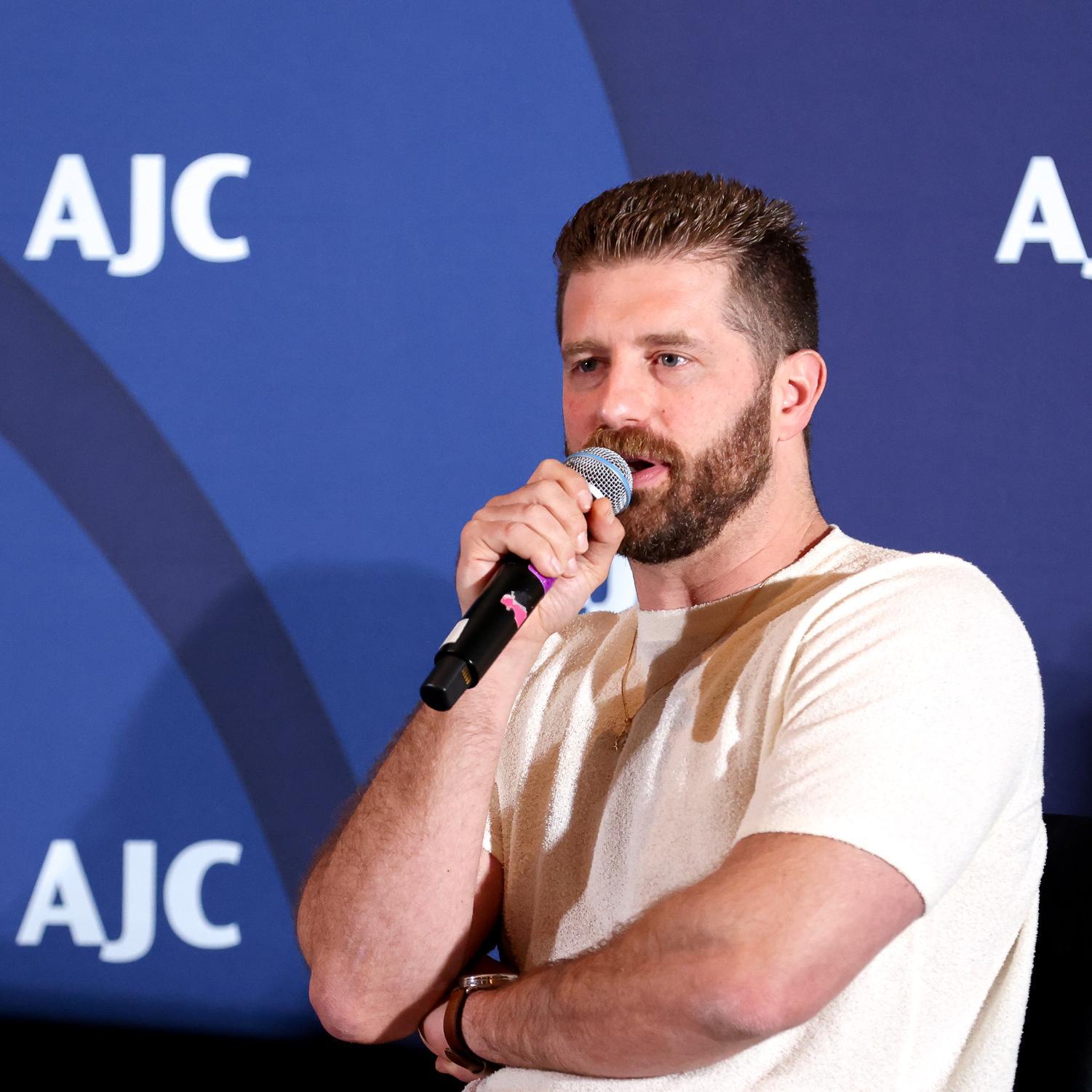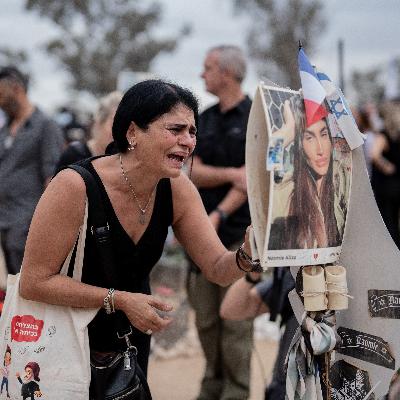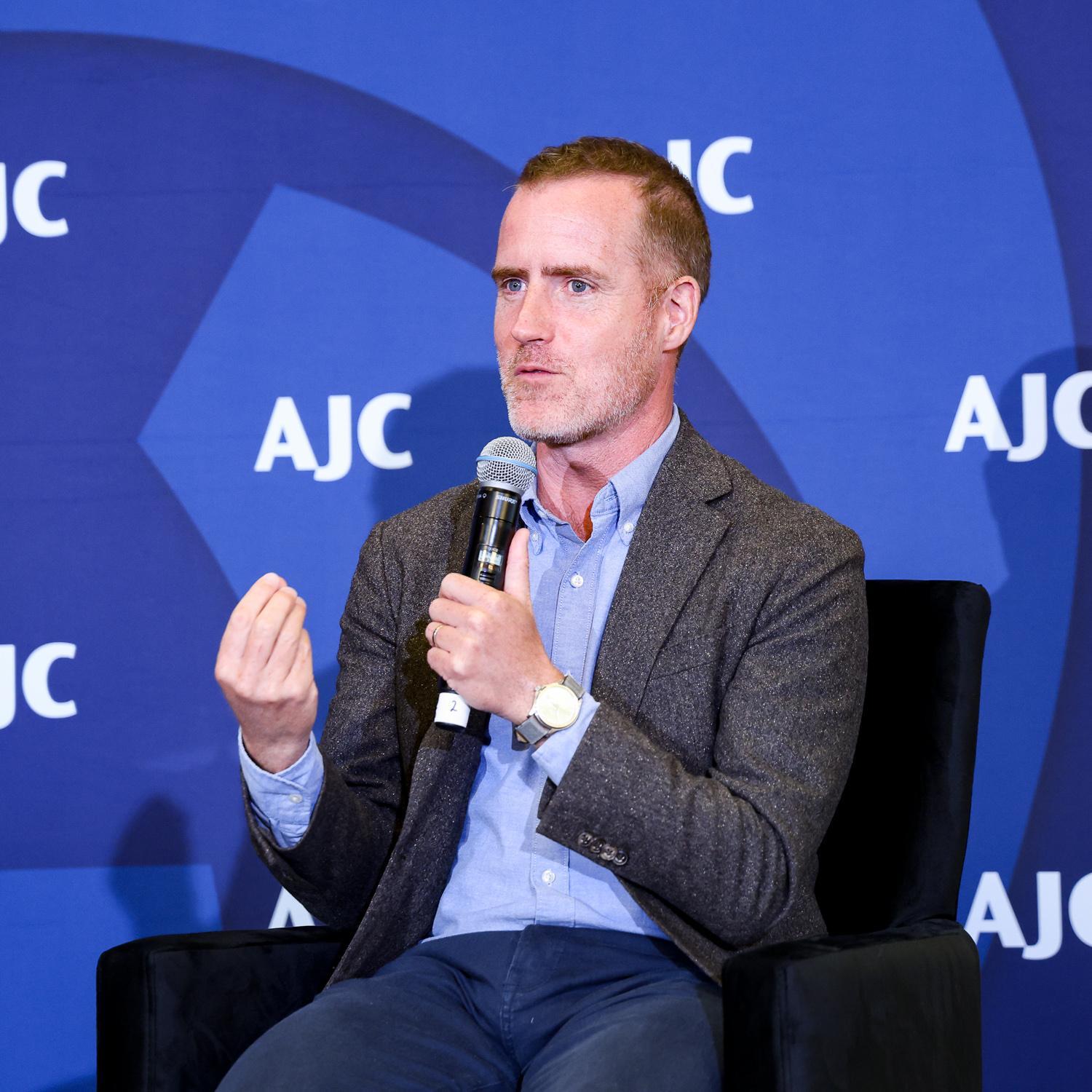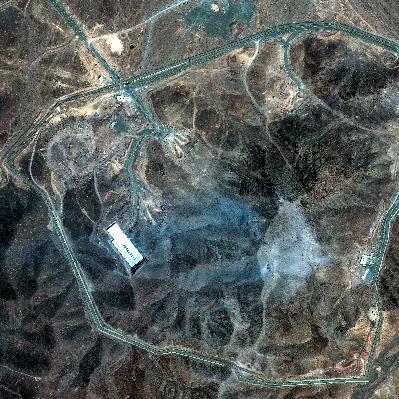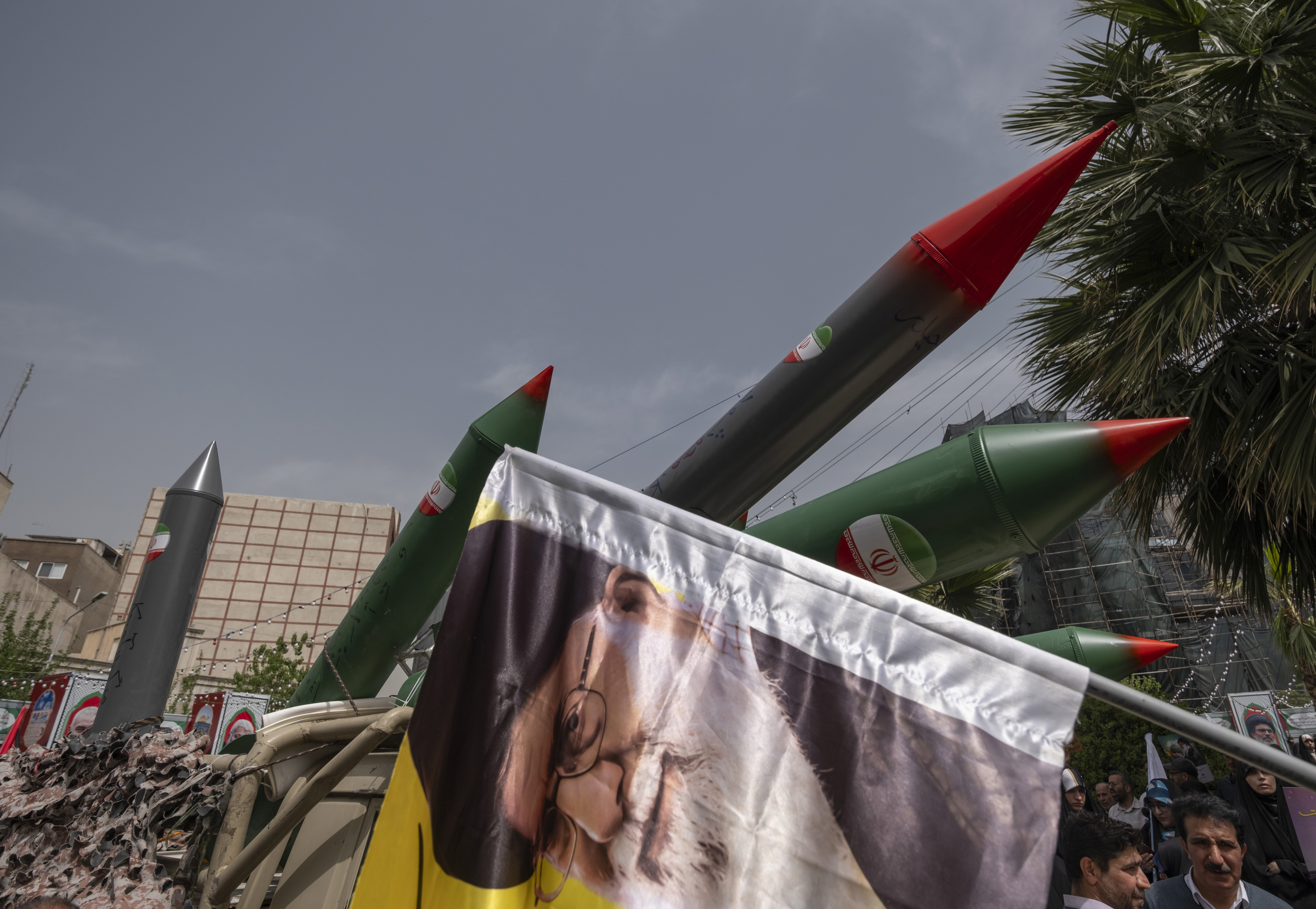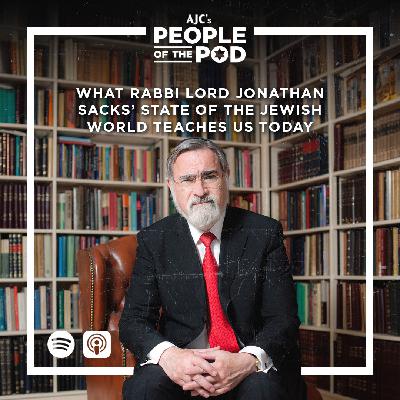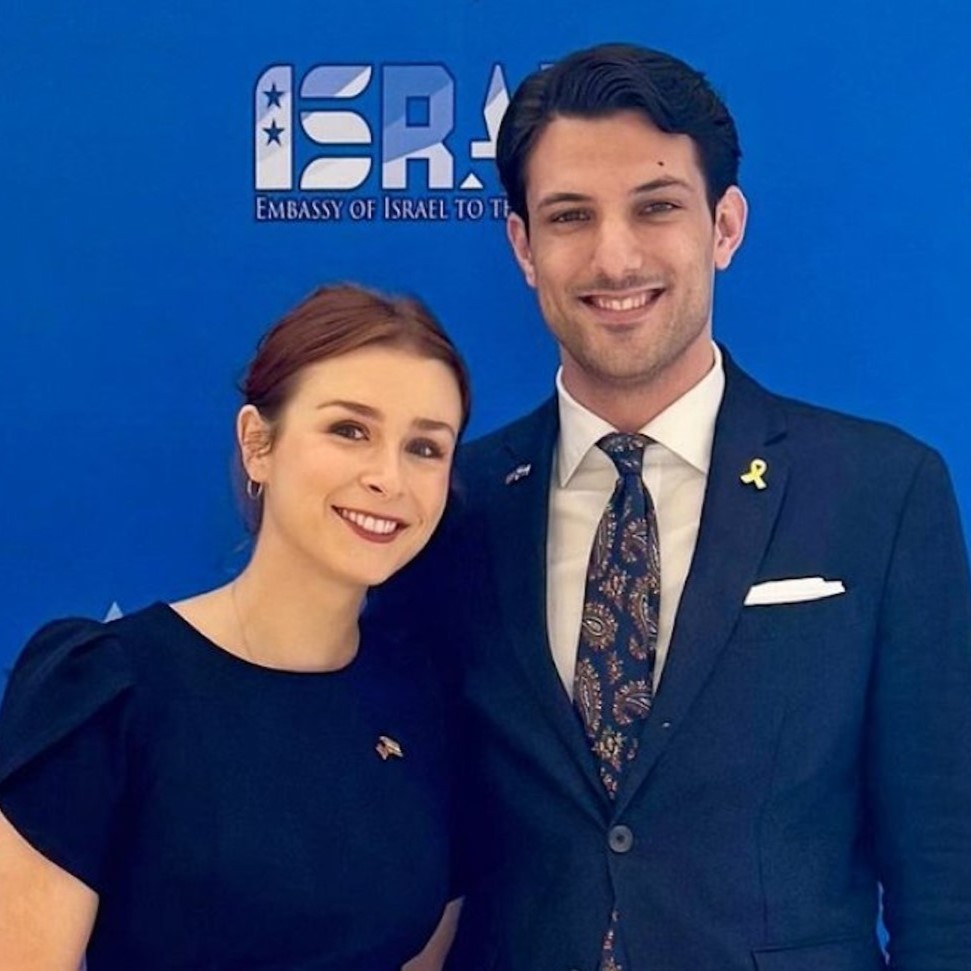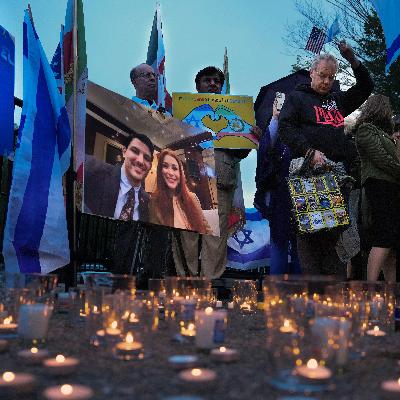Modern-Day Miriams: Jewish Women Shaping Global Diplomacy
Description
“This has been my favorite session of the three days. Thank you,” said one attendee following a powerful live conversation at AJC Global Forum 2025. This exclusive episode of AJC’s People of the Pod, presented by AJC’s Women’s Global Leadership Network, features a candid discussion on the critical impact of Jewish women leaders in global diplomacy and conflict resolution.
Casey Kustin, AJC’s Chief Impact and Operations Officer, joins former U.S. Deputy Assistant Secretary of State Mira Resnick and Dana Stroul, Research Director and Kassen Family Senior Fellow at The Washington Institute for Near East Policy, to share how they’ve navigated the corridors of power, shaped international policy from the Middle East to Europe and beyond, and opened doors for the next generation of women in foreign affairs.
___
Resources–
-
AJC Global Forum 2026 returns to Washington, D.C. Will you be in the room?
Listen – AJC Podcasts:
-
Most Recent Episodes:
-
A United Front: U.S. Colleges and AJC Commit to Fighting Campus Antisemitism
-
Why TikTok is the Place to Talk about Antisemitism: With Holocaust Survivor Tova Friedman
-
The Forgotten Exodus: Untold stories of Jews who left or were driven from Arab nations and Iran
-
People of the Pod
Follow People of the Pod on your favorite podcast app, and learn more at AJC.org/PeopleofthePod
You can reach us at: peopleofthepod@ajc.org
If you’ve appreciated this episode, please be sure to tell your friends, and rate and review us on Apple Podcasts or Spotify.
Interview Transcript:
Manya Brachear Pashman:
Live from AJC Global Forum 2025, welcome to People of the Pod.
For audience members who are not in this room, you are listening to a show that was recorded in front of a live studio audience on April 29 at AJC Global Forum 2025 in New York. I'm your host, Manya Brachear Pashman. Thank you all for being here.
In countries around the world, women are working more than ever before. But compared to men, they are not earning as much or being afforded an equal voice – at work, at home, or in the community. In no country in the world do women have an equal role. Let me repeat that. In no country in the world, do women have an equal role–when it comes to setting policy agendas, allocating resources, or leading companies.
With us today are three modern-day Miriams who have raised their voices and earned unprecedented roles that recognize the intellect and compassion they bring to international diplomacy. To my left is AJC Chief Impact and Operations Officer, Casey Kustin. Casey served as the staff director of the Middle East, North Africa, and Global Counterterrorism Subcommittee on the House Foreign Affairs Committee for 10 years. She has worked on political campaigns at the state and national level, including on Jewish outreach for Barack Obama's presidential campaign. Welcome, Casey.
To Casey's left is Dana Strohl. She is the Director of Research for the Washington Institute for Near East Policy. She was the Deputy Assistant Secretary of Defense for the Middle East. In this role, she led the development of U.S. Department of Defense policy and strategy for Bahrain, Egypt, Israel, Iran, Iraq–I'm not done–Jordan, Kuwait, Lebanon, Oman, Palestinian Authority, Qatar, Saudi Arabia, Syria, United Arab Emirates, and Yemen. Prior to that, she also served on Capitol Hill as the senior professional staff member for the Middle East on the Senate Foreign Relations Committee. Welcome, Dana.
And last but not least, Mira Resnick. Mira was the former Deputy Assistant Secretary of State for Israeli and Palestinian Affairs and Arabian Peninsula Affairs, in which she handled two crucial Middle East portfolios, usually helmed by two separate people. Previously, she oversaw the Department's Office of regional security and arms transfers, where she managed foreign arms sales and shepherded the Biden administration's military assistance to Ukraine and Israel after Russia's invasion and after the October 7 Hamas attacks. Like Casey, Mira has also served as a senior professional staff member with the House Committee on Foreign Affairs, focusing on the Middle East and North Africa. Thank you for being here, Mira.
Welcome to all of you, to People of the Pod.
I think it's safe to say, this panel right here, and all the knowledge and experience it represents could solve the Middle East conflict in one day, if given the chance. Casey, you served for a decade as staff director for the Middle East, North Africa and Global Counterterrorism Subcommittee. A decade, wow. You witnessed a lot of transition, but what were the constants when it came to regional cooperation and security needs?
Casey Kustin:
What’s the saying? The enemy of my enemy is my friend. And that's the world that we're all trying to build. So, you know, from an American perspective, which we all came from in our government work, it was trying to find those shared interests, and trying to cultivate, where we could, points of common interest. And even with the challenges of October 7 now, perhaps stalling some of those areas of progress, you still see that the Abraham Accords haven't fallen apart. You saw when Iran launched missiles at Israel. You saw other countries in the region come to, maybe they wouldn't say Israel's defense. It was their airspace defense. But you saw that still working. You see that still working now. And it's every day when we come to work at AJC, we're thinking about how to increase and strengthen Israel's place in the world.
Manya Brachear Pashman:
So Mira, your role encompassed both Israel and the Gulf for the first time, right?
Mira Resnick:
That was the first time at my level. Yes.
Manya Brachear Pashman:
Okay, so whose idea was that, and did that put you or the US in a position to work for the good of the neighborhood, rather than just Israel, or just the Gulf States?
Mira Resnick:
Yeah, this was an opportunity for the State Department to be able to see all of the different threads that were coming throughout the region. This is something that Dana did on a daily basis. This is something that our colleagues at the NSC did on a daily basis. The Secretary, of course, needs to be able to manage multiple threads at the same time. When I was overseeing arms sales, of course, I would have to consider Israel and the Gulf at the same time.
So this wasn't a new idea, that our interests can be aligned within one portfolio, but it was particularly important timing for the United States to be able to see and to talk to and to hear our Gulf partners and our Israeli partners at the same time within the same prism, to be able to truly understand what the trends were in the region at that particularly critical moment, post-October 7.
Manya Brachear Pashman:
Dana, in your role as Assistant Deputy Secretary of Defense, you met with military leaders in the Middle East, around the world, and you were often the only woman at the table. What do women contribute to international conflict resolution that's missing when they're not given a seat at the table?
Dana Strohl:
Well, let me start out by stating the obvious, which is that women make up 50% of the global population of the world. So if 50% of the world is missing from the negotiating table, from the peacemaking table, from conflict prevention mechanisms, then you're missing 50% of the critical voices. There's evidence, clear evidence, that when women are part of peace processes, when they are part of negotiations, the outcomes on the other side are 35% more sustainable. So we have evidence and data to back up the contention that women must be at the table if we are going to have sustainable outcomes.
When I think about the necessity, the imperative, of women being included, I think about the full range of conflict. So there's preventing it, managing it, and then transitioning to peace and political processes in a post-war or post-conflict situation. In every part of that, there's a critical role for women. As examples, I always think about, when you make policy, when you have a memo, when there's a statement that's really nice, in the big capital of some country, or in a fancy, beautiful palace somewhere in the Middle East or in Europe.
But peace only happens if it's implemented at a local level. Everyone in the world wants the same things. They want a better life for their kids. They want safety. They want access to ba

